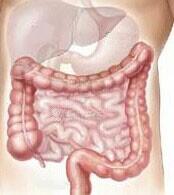Benefits greatest for fish eaters, researchers say
MONDAY, March 9, 2015 (HealthDay News) — A vegetarian diet might cut the risk of colorectal cancer by 20 percent, according to new research. For fish-eating vegetarians, the protective link is even stronger, according to a study published online March 9 in JAMA Internal Medicine.
Michael Orlich, M.D., Ph.D., assistant professor of preventive medicine at Loma Linda University in California, and colleagues analyzed data on 77,659 men and women enrolled in the Adventist Health Study 2. “About half of our study population was classified as non-vegetarian, which we defined as eating meat at least weekly,” Orlich told HealthDay. The others participants were divided into four groups: semi-vegetarians ate meat less than once a week; pesco-vegetarians ate fish and seafood but avoided other meats; lacto-ovo vegetarians avoided meat but ate eggs and/or dairy products; and vegans avoided all meats, eggs, and dairy, Orlich explained.
After seven years of follow-up, 380 cases of colon cancer and 110 cases of rectal cancer were identified. “All vegetarians together had on average a 22 percent reduction in the risk of developing colorectal cancer, compared with non-vegetarians,” Orlich said. In terms of individual cancers, that equated to a 19 percent lower risk for colon cancer and a 29 percent lower risk for rectal cancer, the researchers found. Pesco-vegetarians had a 43 percent reduction in risk of colorectal cancers compared with non-vegetarians. For vegans and lacto-ovo vegetarians, the risk fell 16 to 18 percent, while semi-vegetarians had an 8 percent lower risk.
“Our vegetarians not only ate less meat than the non-vegetarians, but also less sweets, snack foods, refined grains, and caloric beverages,” Orlich said. And they ate more fruits, vegetables, whole grains, beans, and nuts, he added.
Copyright © 2015 HealthDay. All rights reserved.








